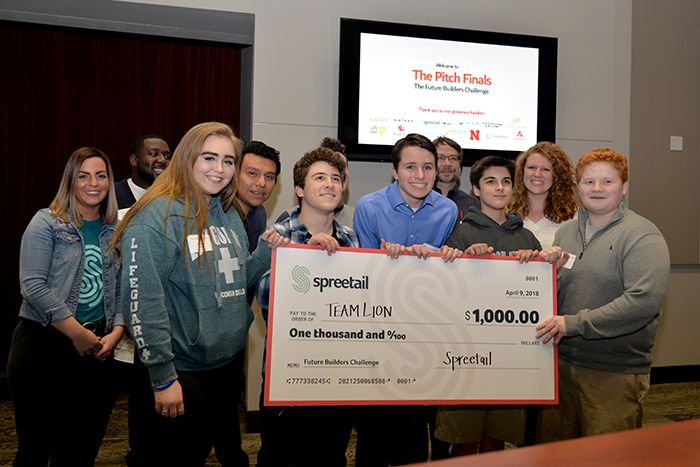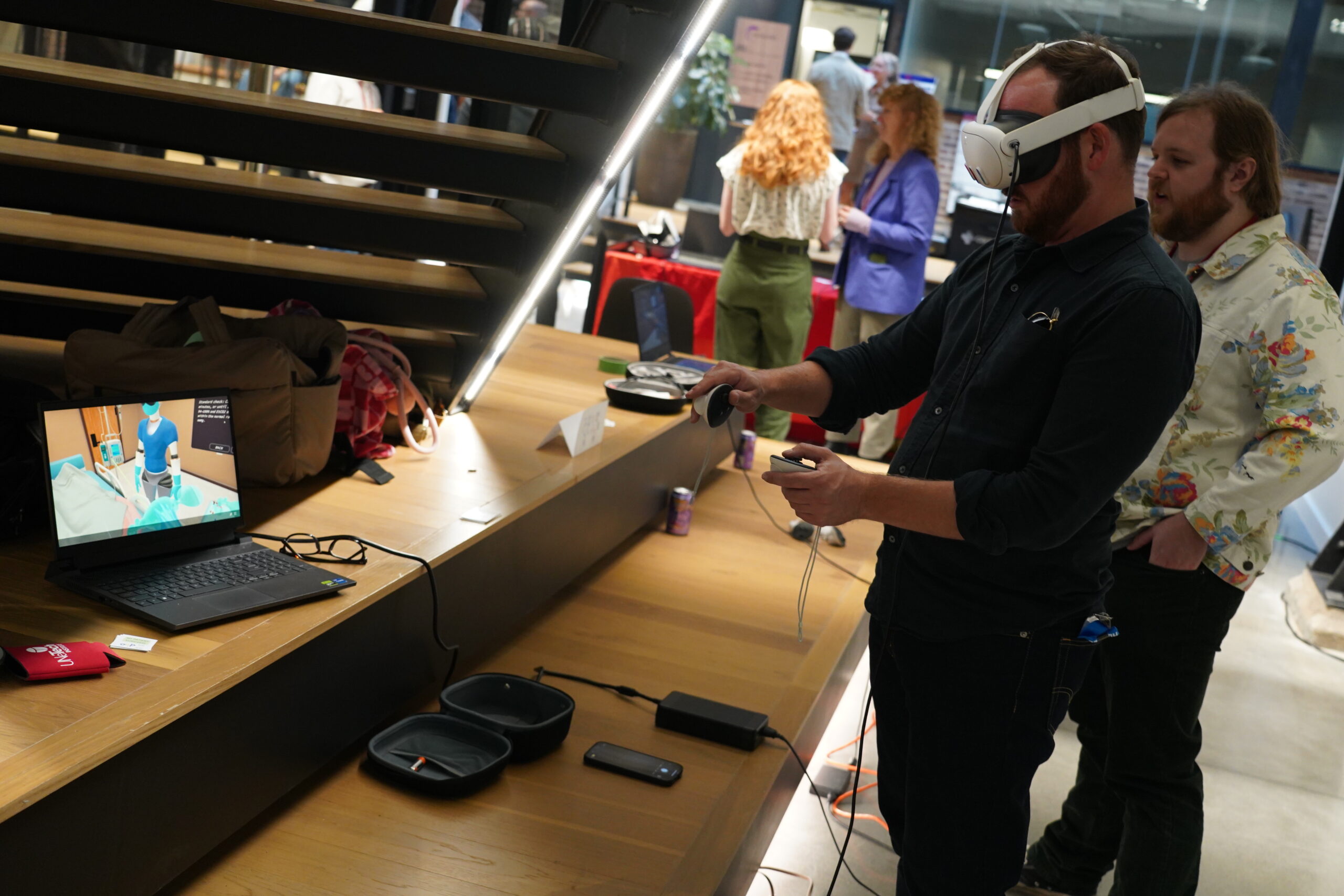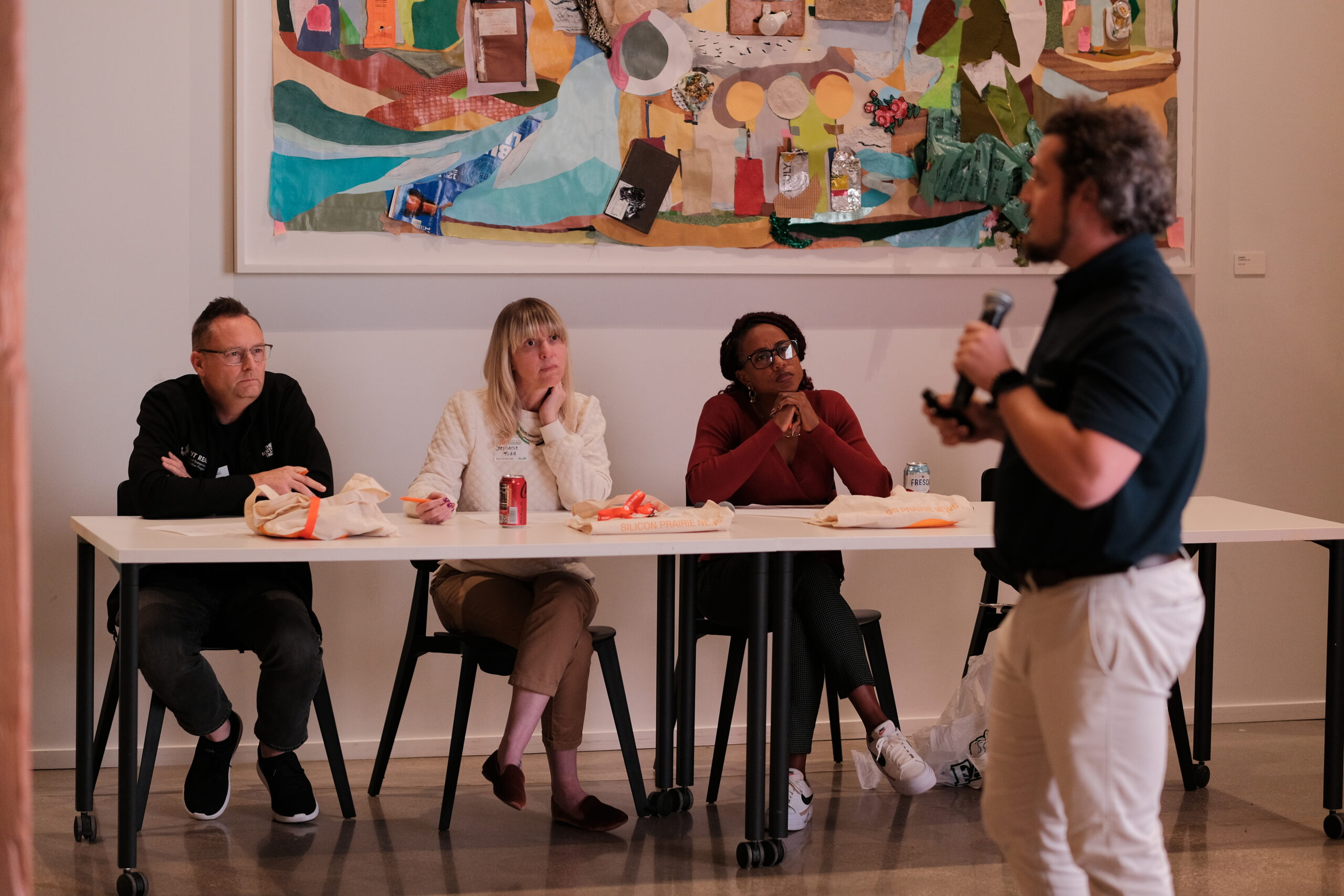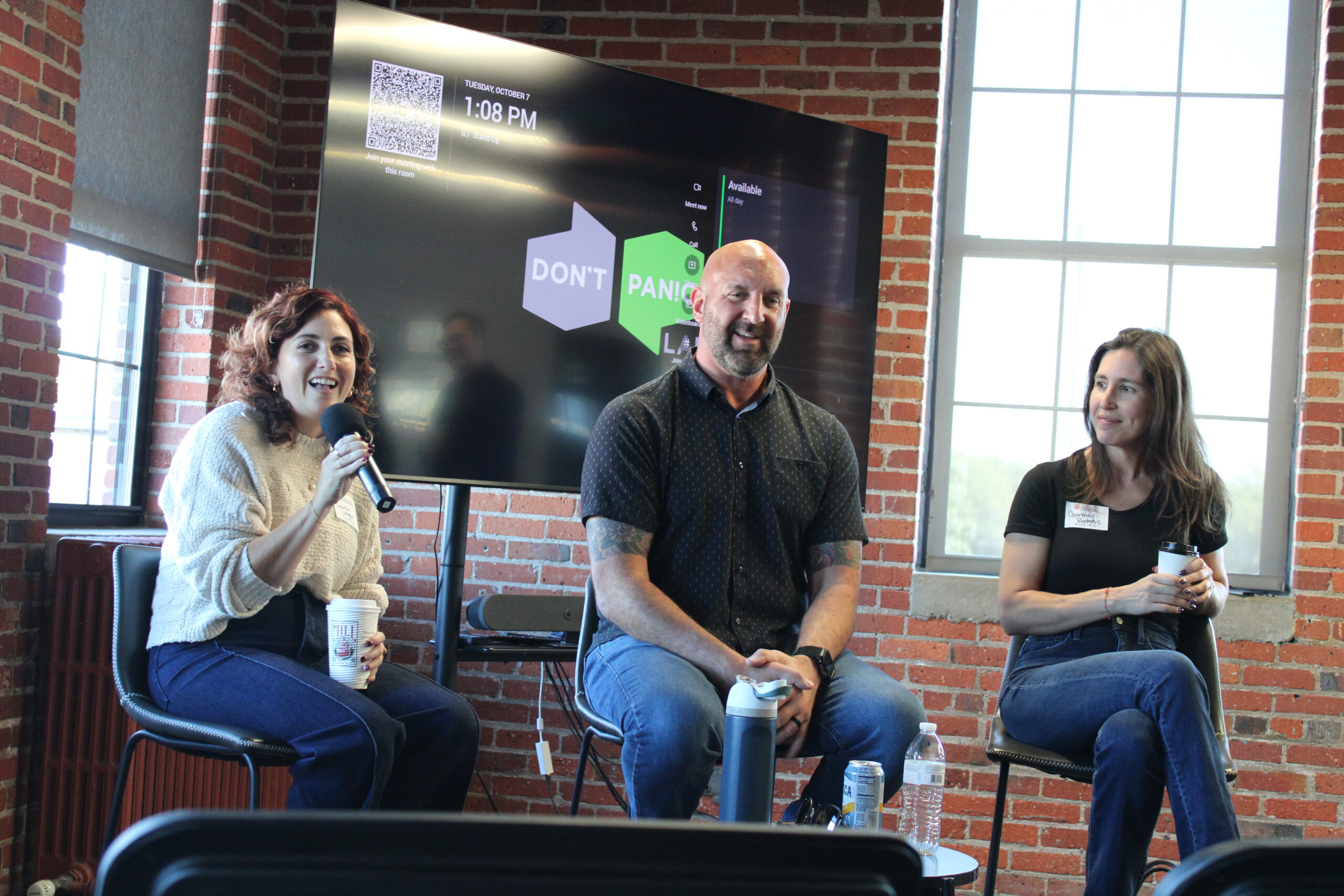Earlier this year, SPN highlighted a community partnership underway in Lincoln to encourage and support young entrepreneurs. The Future Builders Challenge helps students identify and act on entrepreneurial talents based on research by the Gallup Organization. With the program’s boot camp and pitch competition complete, SPN reached out to organizers and mentors for an update.
“Spreetail sponsored the pitch competition,” said Rich Claussen, Ambassador for Innovation and Entrepreneurship at Prosper Lincoln. “It went really well.”
The boot camp and pitch competition attracted around 100 students and featured four-person teams drawn from among more than 3,000 students who completed the Gallup Builder Profile (BP) 10 assessment. Mentors from Lincoln’s startup community helped teams refine a business idea and pitch. Organizers specified that business ideas should address one or more of the focus areas identified by Prosper Lincoln, a decision that was not taken lightly.
“Should we let kids do whatever they want, or do we need to give them focus?” Claussen said. “Do we give them one challenge that everyone attacks? We ended up agreeing that we should use Prosper Lincoln as that agenda and choose 3 or 4 challenges from each focus area.”
Prosper Lincoln, a strategic initiative of the Lincoln Community Foundation, has established a community agenda for positive change in three focus areas: Early Childhood, Employment Skills and Innovation & Entrepreneurship. The Future Builders Challenge falls squarely within the third focus area.
“There were a lot of good pitches that didn’t make the finals but were still good ideas,” Claussen said. “Two winning teams were able to make connections with people in the community to help build their ideas out.”
Student recruitment was challenging but was helped by strong support from school administrators and faculty, as well as the Foundation for Lincoln Public Schools. Even so, numbers were not as high as expected in the weeks leading up to the program’s kick-off.
“We realized that we were expecting students to check their school email for the invitation,” Claussen said. “We started working with the schools on more intentional outreach to students and parents, and we went from 40 to 100. The schools were very accommodating.”
Mentors who assisted during the boot camp and pitch competition had some interesting insights, especially about the role technology played in many of the ideas being developed.
“Nearly every team I worked with or judged either used technology in interactions with physical surroundings, or had technology in some way initiating the engagement,” said Bill Udell with Don’t Panic Labs. “There is a significant difference between how this next generation of entrepreneurs and business leaders think about the role and interaction with technology. There is a comfort with the augmentation of daily experience that is so much more natural for these kids.”
Others recognized the importance of engaging young people in the startup ecosystem.
“If we are going to mature as a technology and innovation startup community, we need to continue the process of learning sooner and the Future Builders Challenge does just that,” said Matthew Wegener with ISoft Data Systems, Presage Analytics and Turbine Flats. “Watching these students brain-storm ideas, validate assumptions, and try to position a product into a marketplace wasn’t just a fun experience for me as a mentor, it was incredible to see the speed and depth that the students began to grasp the complexities of designing, validating, and pursuing a market for a product.”
The students also seemed to view problems differently than adults sometimes do.
“The most exciting part of the Future Builders event was seeing that issues and problems are opportunities to these students. They were inspiring in their fearlessness,” said Paul Jarrett, Co-Founder and CEO of Bulu. “I admire Rich and the Prosper Lincoln team, Matt (Tebo) and team at Foundation for Lincoln Public Schools, and all the other people and organizations involved in pulling off this event. Bulu will be back next year!”
The program is supported financially through philanthropy and in-kind contributions. Claussen is hoping to see it continue for at least three years.
“It’s one of the toughest sells I’ve ever made,” he said. “It’s not just a leap of faith, it’s a pole vault of faith. At every turn, we need to remind those funders of the good their investment is helping to make.”
At least one parent is a believer.
“Thank you so much for this experience,” the parent said. “Our son is so excited about the day and capping it off with a win! His exact words were ‘today is what school should be like all the time.’”
The next phase of the program is the selection of 30 students to participate in a more intensive four-week training session in June conducted by the Clifton Strengths Institute (CSI) at the University of Nebraska-Lincoln.
“It’s exciting to find entrepreneurial talent at such a prime development age,” said Samantha Kennelly, CSI Assistant Director. “Some of these students are 15 or 16. It’s so powerful to identify talent early and give them support an access to resources.”
Mentoring will be provided by college students enrolled in the CSI program, currently the only college-level strengths program of its kind in the country.
“Using the BP 10 assessment, we look for students who have entrepreneurial potential as freshmen,” Kennelly said. “They meet other like-minded students who have a passion for starting something. We help them recognize their talents and connect them to resources that help them develop.”
All this is heartening to Todd Johnson, Global Channel Leader, Entrepreneurship and Job Creation at Gallup. Johnson was instrumental in the launch of the Nebraska Builder Initiative in Omaha last year that included a four-week internship at Gallup. He expects to have visitors from outside the state coming to observe the Lincoln program.
“As we’ve always hoped, we have the attention of economic developers across the country and world,” he said. “We’re going to welcome them right here in Nebraska to show them how we did it.”
The cornerstone of the initiative is the BP 10 assessment, a tool first developed during the Gallup Entrepreneur Acceleration System Program several years ago to measure entrepreneurial aptitude. Is it accurate? Entrepreneur Willy Theisen thinks so.
“When I got the results on my iPad it was a changing moment because it was me,” he said. “Everything I was and wasn’t was right there.”
Johnson pointed to the founder of Twitter as a big reason for the program.
“Ev Williams was born in Nebraska, went off and invented Twitter and some other things someplace else,” he said. “He did not found Twitter in the Haymarket. Figure out who’s the next Ev Williams, find them, get them a coach, and work to enlighten their confidence around building something.”
Confidence may be the biggest intangible in the equation.
“I came by when they had the Omaha builder network,” Theisen said. “I greeted them at the beginning, then came toward the end. You could see a marked difference: confidence.”
__
Rod Armstrong is the Vice President of Fundraising at AIM Institute and a regular contributor to Silicon Prairie News.







